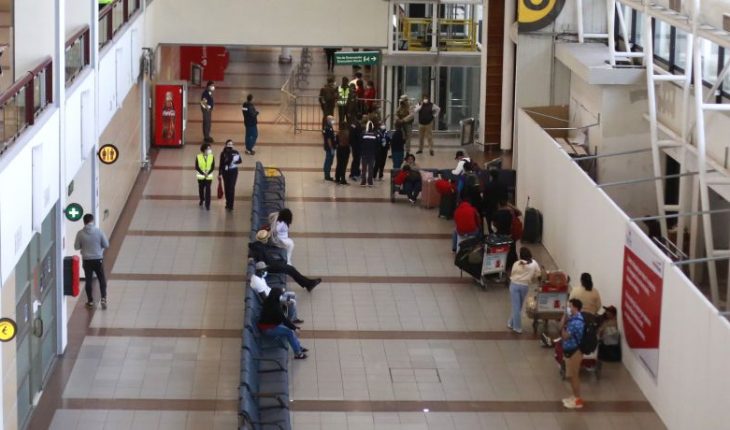The Ministry of Health’s Covid-19 Advisory Council called for strengthening border control, generating incentives for vaccination and simplifying the indicators of the new “Step by Step” plan. The panel of experts shared a document in which it pointed out the need to “resort to the use of technological tools that favor” the testing, traceability and isolation of infections in the country. He also recommended “strengthening the strategy of controlling points of entry” into the country, such as airports, ports and land border crossings, which are closed only with a few exceptions. Along these lines, “verify that all personnel working at the points of entry are vaccinated, including health personnel and those from other state agencies, as well as those of contracting companies in all their shifts,” and in this sense “prevent the face-to-face activity of unauthorized persons,” the text states. The council also explained that it is important to “extend the mandatory stay at the quarantine hotel to 7 days for all travelers without exception; verify that there is a negative pre-departure test, and that people continue their quarantine period until the 10 days are complete; and verify that all staff in health care homes and quarantine hotels are vaccinated.” He also proposed “generating incentives for vaccinated people”, as well as “accelerating the vaccination program and improving population coverage”, pointing to the need to promote the processes to study the immunization of children between 3 years and 12 years and strengthen the inoculation scheme in the general population, “prioritizing older adults and health personnel”. The Advisory Council also referred to risk communication, masks and ventilation where it stated that it is essential to “generate economic aid programs that facilitate the structural adaptations required for this purpose and monitor their implementation.” Update the standards that a mask must meet to provide adequate protection; evaluate the feasibility of certifying the quality of masks; and facilitate access in all closed environments, including the means of collective locomotion,” he explains. In addressing risk communication, the panel of experts said that it is necessary to “renew and strengthen as soon as possible the communication campaigns, with a positive and non-punishing discourse, inviting and informing how to do well, and that it considers the vision of professionals who are experts in social communication in health and local studies of adherence to health measures.”
translated from Spanish: Advisory Council called for strengthening border control and generating vaccination incentives
July 1, 2021 |





